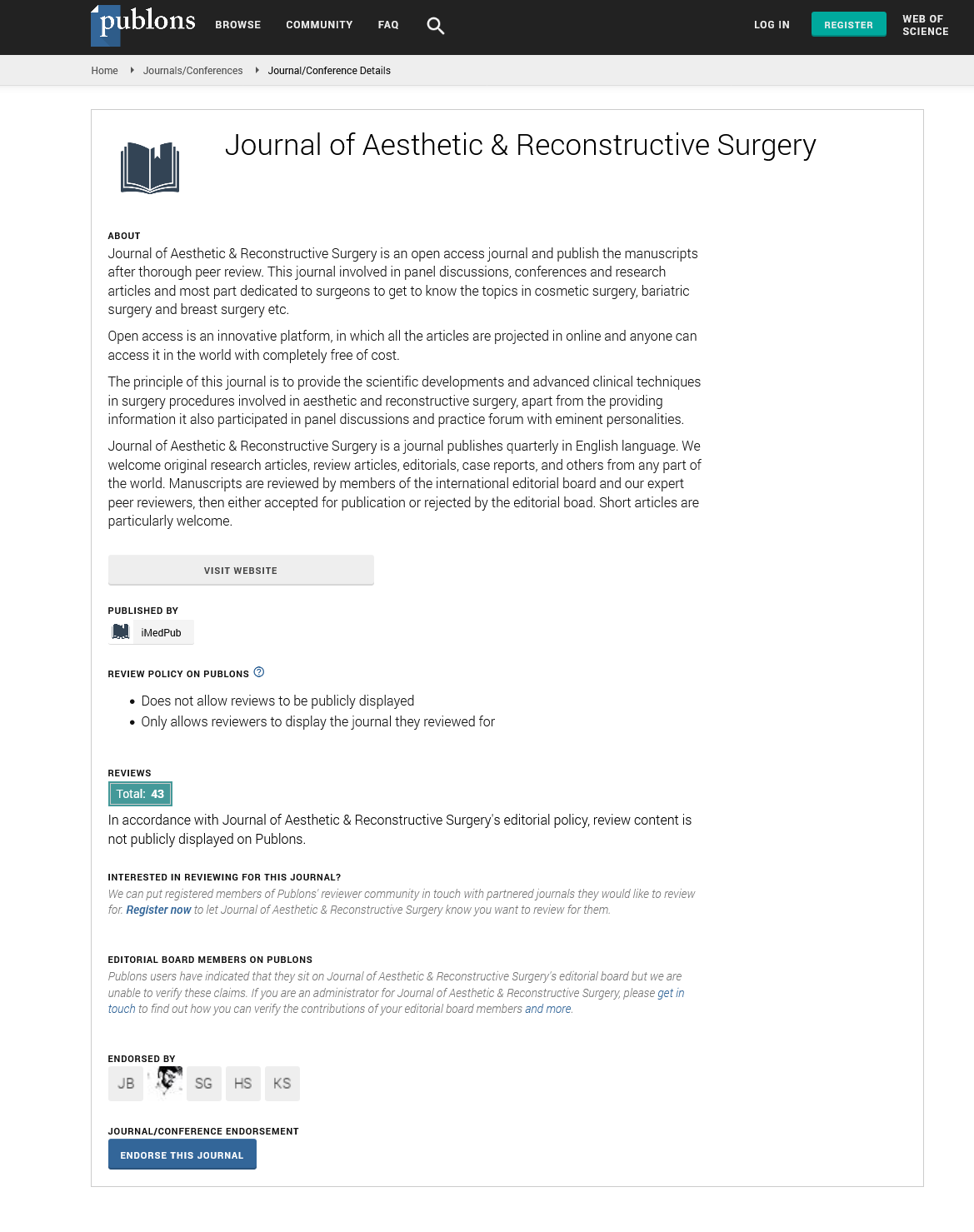Abstract
Prevalence and Mortality Rate of Necrotizing Fasciitis, 5 Yearsâ?? Experience in a Single Center.
Although rarely reported in the literature, adenomatous polyp and adenocarcinoma can occur as a late complication in an interposed colonic segment. Colon interposition, although often well tolerated, can be associated with restenosis, polyps or rarely adenocarcinoma.1 Very few cases of adenocarcinoma of the interposed colonic segment have been reported in the literature. Early detection and treatment can improve morbidity and mortality, especially if patients are young with good life expectancy. Colonic interposition for oesophageal reconstruction has been performed for almost 100 years. It is generally performed for not only malignant disease of the oesophagus but also for benign oesophageal disease, such as lye-induced strictures or oesophageal injury from trauma if gastric pull-up procedures are not technically feasible. It has been shown to lower postoperative morbidity and mortality as well as improve long-term quality of life. I describe the outcomes of colon interposition for late stage adenocarcinoma of the esophagus in a tertiary care setting and also about other treatment options.
Author(s):
Fatima A.Nabi Abdulla
Abstract | Full-Text | PDF
Share this

Google scholar citation report
Citations : 130
Journal of Aesthetic & Reconstructive Surgery received 130 citations as per google scholar report
Journal of Aesthetic & Reconstructive Surgery peer review process verified at publons
Abstracted/Indexed in
- Google Scholar
- China National Knowledge Infrastructure (CNKI)
- Directory of Research Journal Indexing (DRJI)
- WorldCat
- Publons
- Geneva Foundation for Medical Education and Research
- Secret Search Engine Labs
- Euro Pub
Open Access Journals
- Aquaculture & Veterinary Science
- Chemistry & Chemical Sciences
- Clinical Sciences
- Engineering
- General Science
- Genetics & Molecular Biology
- Health Care & Nursing
- Immunology & Microbiology
- Materials Science
- Mathematics & Physics
- Medical Sciences
- Neurology & Psychiatry
- Oncology & Cancer Science
- Pharmaceutical Sciences


